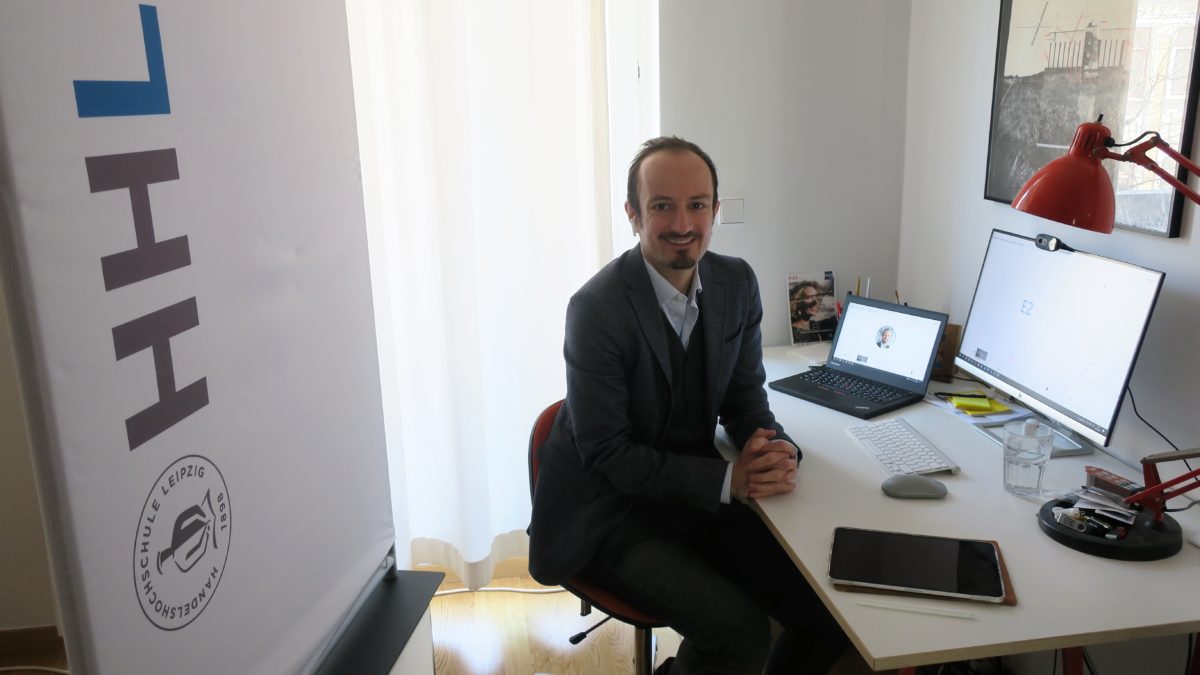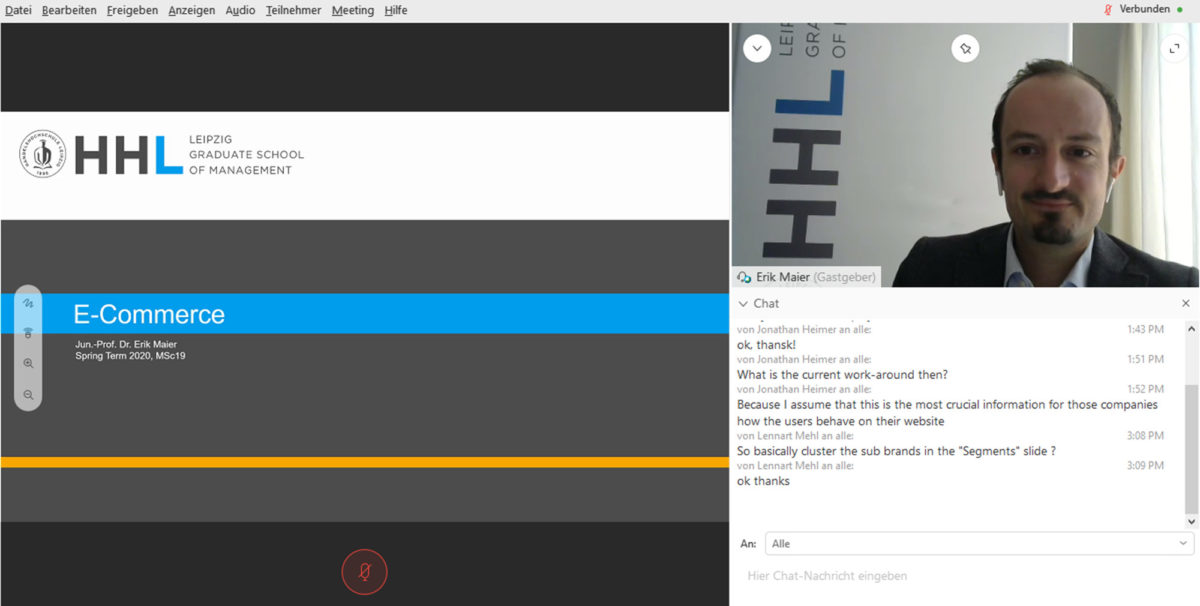We’re Moving Apart Physically but Closer Mentally and Digitally
Taking Stock After One Week of Academic Instruction in Corona Mode
HHL Leipzig Graduate School of Management, suspended classroom teaching in the middle of March and converted most of its instruction to online formats. Junior Professor Dr. Erik Maier from the Chair of Retail and Multi-Channel Management is taking stock.
“It does feel strange but in times when soccer games and pop concerts can take place without an audience, we can get used to this.”
Professor Maier, what is your assessment after one week of online teaching?
The first week went very well and, surprisingly, without problems. The students were pleased, stating that they were able to follow the classes and having only a few notes. We were mostly spared the problems that other conference organizers had with their technical providers. For my first week of lectures in times of corona, I can conclude that we’re moving apart physically but closer mentally and digitally.
How did you structure your first online lectures?
One lecture is three hours. The students enter an online session. The first two hours are about teaching and discussing content. I give a presentation and the students can ask questions. I react live and include their comments and responses into my presentation. In the third hour, all students work individually on their predefined tasks and I am available online for questions and assistance. At the end of the session, the students upload their solutions and I review them. I will present the sample solution in the lecture.
So, you are alone in the lecture hall?
I am. It does feel strange but in times when soccer games and pop concerts can take place without an audience, we can get used to this. I am still in contact with the students; I see them and hear their questions.

Prof. Dr. Maier in his homeoffice.
What were the difficulties?
Just a few minor things. For instance, some people had forgotten their login details for the website to upload their solutions.

Prof. Dr. Maier staying connected to the students, while presenting the actual lecture.
Could this be a model for lectures in the future?
I continue to prefer classroom teaching because we can have better and more extensive discussions — and this is what it’s all about at a master’s level. Structuring these formats to be interactive also requires a lot of work. Longer contributions from the students can also be rather difficult. I could imagine teaching my content in a combined form in times that do not require precautionary measures against corona. This means it is entirely conceivable for me to conduct one part as a “ghost lecture” and the other part of a class on campus in the “normal human mode”.
This version could be quite beneficial for our part-time students as well as executive education candidates. Travel could be avoided which would, of course, save time. But, as I said, I would not want to eliminate classroom teaching altogether.
Prof. Dr. Henning Zülch, Vice Dean of HHL
Professor Zülch, how do you assess the current situation in academia and especially at HHL after one week of online instruction?
We offer almost all lectures online and our experience has been very good overall.
Did you expect this process to run so quickly and relatively smoothly when the decision was made to close HHL for classroom teaching last week?
That was our hope. The corona situation exacerbated much faster than we had expected which put a lot of pressure on us to find solutions for our students. After all, we had made a promise to our students which we had to keep. Our students pay for their programs and we promise to supply them with the best possible education.
“Our entire instruction is tailored to training our students to act as leaders in a digitalized world. This allowed us to react relatively fast, despite all challenges.”
Why are you faster than many other universities?
In a situation like this, it is certainly an advantage that our school is small, very personal and geared towards innovation. That means that our decision-making processes are very fast. Moreover, we have professors like Erik Maier and Claudia Lehmann — Professor of Innovation and Digitalization — in our ranks who are experts in their fields and capable of thinking about digitalization in a future-oriented manner.
Our entire instruction is tailored to training our students to act as leaders in a digitalized world. This allowed us to react relatively fast, despite all challenges.
Does the current situation also represent an opportunity?
What our society, or even the entire world, is facing right now is an entirely unprecedented situation in which, first and foremost, people need to be protected. This is the most important task of all of us. Therefore, we decided beforehand, without pressure, to suspend classroom teaching as soon as possible.
At HHL, we do not view the current scenario only as a risk but also as an opportunity to walk new paths with our students, the faculty and administration of the school and to rethink instruction even more digitally than before in this high-pressure situation.


